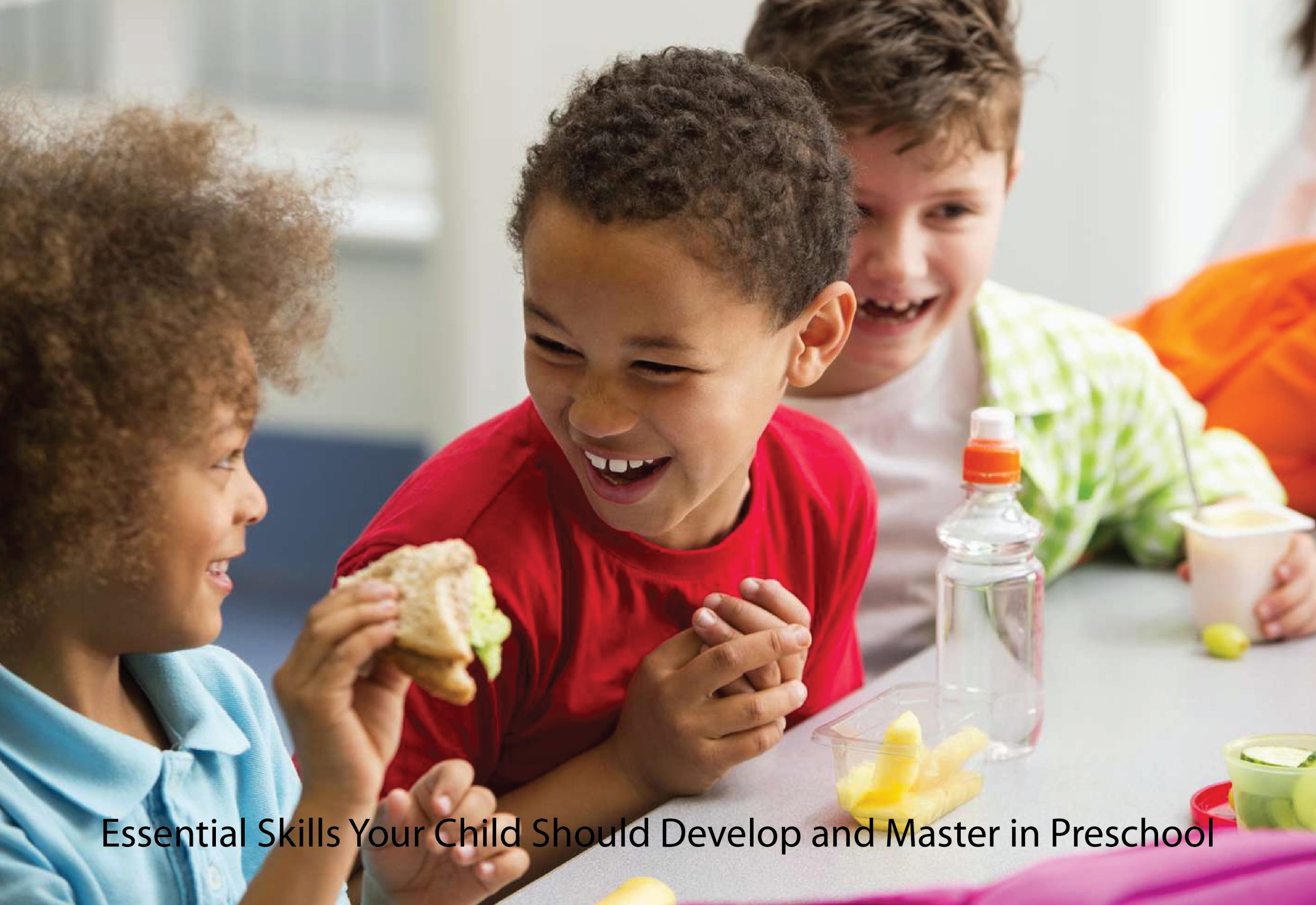15 Essential Skills Your Child Should Develop and Master in Preschool
Preschool is a critical stage in a child’s development, laying the foundation for their future academic and social success. During this formative period, children can acquire various essential skills that will benefit them. We explore 15 essential skills your child should develop and master in preschool. These skills encompass cognitive, social, emotional, and physical domains, providing a holistic approach to early childhood education.
Language and Communication Skills
Effective language and communication skills are crucial for a child’s overall development. We will discuss the importance of vocabulary expansion, expressive language, active listening, and the development of early literacy skills. These skills lay the groundwork for successful communication and future academic achievements.
Fine Motor Skills
Fine motor skills involve coordinating small muscles in the hands and fingers. We will explore activities that promote fine motor development, such as drawing, coloring, cutting, and manipulating small objects. These skills are essential for writing, buttoning clothes, and using utensils.
Gross Motor Skills
Gross motor skills involve using large muscle groups and coordinating the body’s movements. We will highlight the importance of activities that develop balance, coordination, and strength, such as running, jumping, climbing, and throwing. Developing gross solid motor skills supports overall physical health and enables participation in sports and outdoor activities.
Social Skills and Emotional Intelligence
Preschool is ideal for children to learn and practice social skills and emotional intelligence. We will explore the development of skills like sharing, taking turns, empathy, conflict resolution, and self-regulation. These skills lay the foundation for healthy relationships and emotional well-being throughout life.
Problem-Solving and Critical Thinking
Encouraging problem-solving and critical thinking skills in preschool helps children develop a curious and analytical mindset. We will discuss activities that foster creative thinking, reasoning, and decision-making. These skills empower children to approach challenges with confidence and develop innovative solutions.
Numeracy Skills
Numeracy skills form the basis for mathematical understanding. We will explore activities that promote counting, number recognition, basic operations, and the concept of patterns. Developing numeracy skills in preschool builds a strong foundation for future mathematical proficiency.
Cognitive Skills and Memory
Cognitive skills, including memory, attention, and concentration, are crucial for learning and academic success. We will discuss activities that enhance memory, problem-solving, and cognitive flexibility. These skills support children’s ability to absorb and retain information.
Self-Help Skills
Self-help skills foster independence and promote personal responsibility. We will explore activities that develop self-help skills such as dressing, feeding, toileting, and personal hygiene. These skills empower children to become self-reliant and confident in managing their daily routines.
Listening and Following Directions
Listening and following directions are vital for academic success and effective communication. We will discuss strategies to improve listening skills, focus, and the ability to follow instructions. These skills contribute to classroom engagement and positive learning experiences.
Creativity and Imagination
Nurturing creativity and imagination in preschool enhances cognitive and emotional development. We will explore activities that stimulate creativity, such as art, pretend play, storytelling, and problem-solving through imaginative play. These skills foster innovation, self-expression, and lateral thinking.
Cultural Awareness and Diversity
Preschool provides opportunities to introduce children to different cultures, traditions, and perspectives. We will discuss activities that promote cultural awareness, respect for diversity, and inclusivity. Developing these skills nurtures empathy, global citizenship, and a sense of belonging in a multicultural society.
Teamwork and Collaboration
Working collaboratively is a crucial skill for success in school and beyond. We will explore activities encouraging teamwork, cooperation, and effective communication in preschool settings. Developing these skills prepares children for future group projects and collaborative work environments.
Time Management and Organization
Introducing essential time management and organization skills in preschool sets the foundation for effective time management habits later in life. We will discuss activities that promote an understanding of routines, schedules, and personal organization. These skills contribute to productivity and efficient use of time.
Curiosity and Love for Learning
Fostering a love for learning and cultivating curiosity in preschool sparks a lifelong passion for knowledge. We will explore activities that stimulate curiosity, exploration, and a growth mindset. Nurturing these skills promotes a positive attitude toward learning and intellectual growth.
Resilience and Perseverance
Building resilience and perseverance in preschool helps children develop a positive attitude toward challenges and setbacks. We will discuss activities that promote resilience, problem-solving in the face of adversity, and the importance of a growth mindset. These skills support children in overcoming obstacles and bouncing back from failures.
Conclusion
Preschool is vital in laying the foundation for a child’s future development and success. By focusing on these 15 essential skills encompassing cognitive, social, emotional, and physical domains, parents and educators can create a well-rounded educational experience for children. By nurturing these skills in preschool, children will be equipped with strong tools to thrive academically, socially, and emotionally as they progress through their educational journey and beyond.






